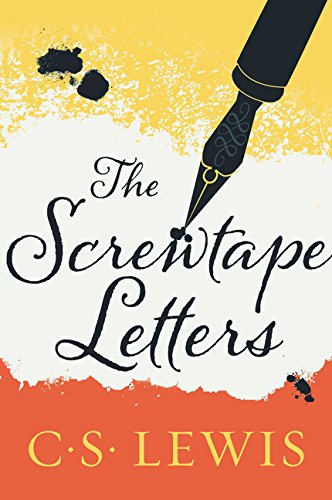How Did People in the Old Testament Live So Long?
We are in our second year of a church book club. Last year and this year, we picked eight novels to discuss, focusing conversation on the themes of dignity and depravity, ruin and redemption, as well as the craft of writing. (You can see the list of books below.)
On Saturday, we discussed Perelandra by C. S. Lewis, which is Book II in the Lewis Space Trilogy. One person described Perelandra as a “theological treatise in a sci-fi context.” I think that’s probably a helpful way to look at it. The discussion leader for this particular book did a fantastic job; as you can see from the picture above (click to enlarge), his notes were very thorough!
I don’t want to give away any of the book, but I do want to quote a section from the very end. It’s just one example of the many, many places where Lewis invites readers to consider biblical ideas afresh.
In this section, the main character (Ransom), is discussing an injury that he suffered and what will happen to his injury upon his subsequent return to earth. Because Perelandra is paradise-like, the king (named Tor), essentially says to a third character (named Tinidril), “I think Ransom will be okay because when someone has been here [the planet Perelandra], it takes a while for ‘paradise’ to get out of his or her system, even when one returns to a fallen planet.”
The connection is then made to the “long livers” in the book of Genesis, and the way that, after the fall, it took a while for paradise to get out of our system.
I don’t know whether this is the best way to answer the question of “how did people live so long?” but I like it. And I thought you might, too.
* * *
Ransom looked down and saw that his heel was still bleeding. “Yes,” he said, “it is where the Evil One bit me. The redness is of [blood].”
“Sit down, friend,” said Tor, “and let me wash your foot in this pool.” Ransom hesitated but the King compelled him. So presently he sat on the little bank and the King kneeled before him in the shallow water and took the injured foot in his hand. He paused as he looked at it.
“So this is [blood],” he said at last. “I have never seen such a fluid before. And this is the substance wherewith Maleldil [the God-like character] remade the worlds before any world was made.”
He washed the foot for a long time but the bleeding did not stop. “Does it mean that [Ransom] will die?” said Tinidril at last.
“I do not think so,” said Tor. “I think that any of his race who has breathed the air that he has breathed and drunk the waters that he has drunk since he came to the Holy Mountain will not find it easy to die. Tell me. Friend, was it not so in your world that after they had lost their paradise the men of your race did not learn to die quickly?”
“I had heard,” said Ransom, “that those first generations were long livers, but most take it for only a Story or a Poetry and I had not thought of the cause.”
* * *
Book Club List, 2015
The Great Gatsby by F. Scott Fitzgerald
Of Mice and Men by John Steinbeck
The End of the Affair by Graham Greene
Heart of Darkness by Joseph Conrad
As I Lay Dying by William Faulkner
Peace Like a Rive by Leif Enger
Jayber Crow by Wendell Berry
Pride and Prejudice by Jane Austen
Book Club List, 2016
My Ántonia by Willa Cather
Perelandra by C. S. Lewis
Winesburg Ohio by Sherwood Anderson
To Kill a Mockingbird by Harper Lee
A Tale of Two Cities by Charles Dickens
All the Light We Cannot See by Anthony Doerr
The Sun Also Rises by Ernest Hemingway
Gilead by Marilynne Robinson





